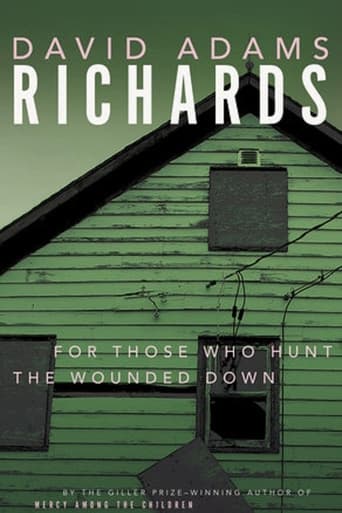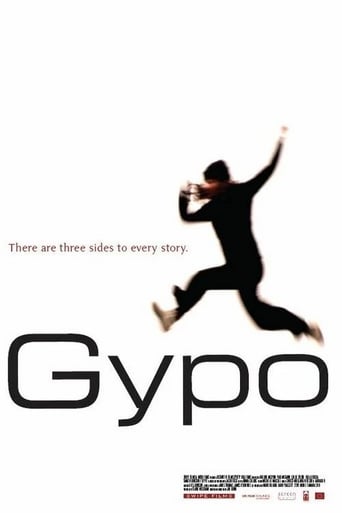


Gypo
Gypo is the story of a working class family in Margate, Kent, a town where immigrants have become the focus of most of the public's discontent. The film tells the story of the a couple of weeks in this family's life, beginning when a young Czech girl, Tash, comes to visit. The film is made in the Dogme95 tradition, so no costumes, no lighting, no props or sets, which gives the film a gritty texture appropriate to the story.
-
- Cast:
- Paul McGann , Pauline McLynn , Rula Lenska , Olegar Fedoro , Ashley McGuire , Josef Altin


Similar titles

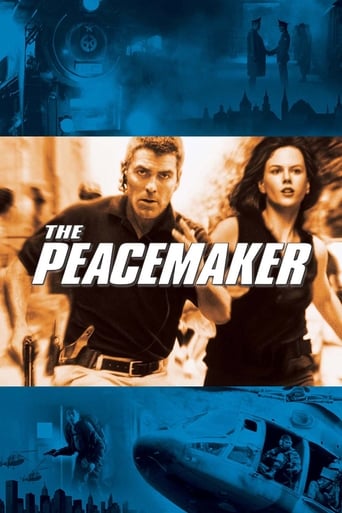
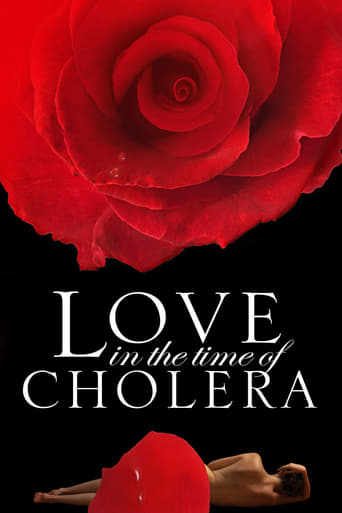
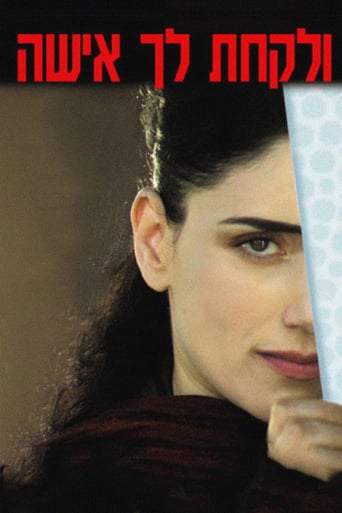
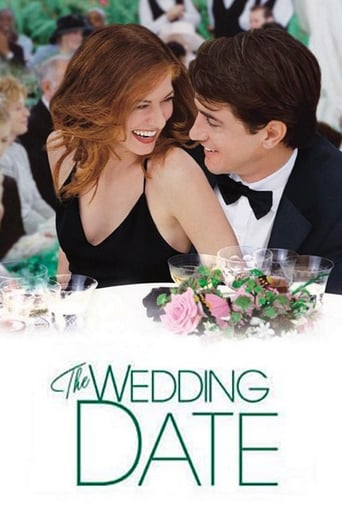
Reviews
That was an excellent one.
Lack of good storyline.
Don't Believe the Hype
The movie's not perfect, but it sticks the landing of its message. It was engaging - thrilling at times - and I personally thought it was a great time.
Being a Czech myself, I feel kind of about this movie. On the one hand, it is very didactic, simple, sometimes pathetic, but at the same time: Be it so. It is necessary and it does the so-called "job":1.look-at-yourselves-you-sometimes-dumb-and- blind-Brits-it's-never-black-and-white,2.look-at-yourselves-you-damned-Czechs- you're-not-able-to-protect-your-citizens, and the Roma situation in your country is really BAD3.or: cultural diversity is good, everyone has something to contribute with,4.or: not everyone is a money-thirsty economical immigrant.On the other hand, the family background and relations of these "Czech" refugees and their portrayal was something I had to cringe at. Truth is that I was wondering about Sirene's (Tasha's) accent all way long...and, with a great uncertainty, I concluded she must have been Slovak. (I didn't know she was English, so in a way her accent was persuasive, although it def. wasn't Czech) I assumed that her mother (Irina/Rula Lenska) must be Russian or Polish because these couple of words she uttered definitely weren't Czech, rather this Slavic universal mixture. The only Czech sentence she says is "miluju te" which means i love you, which is commonly used in English, but rarely amnong parents and children, rather for lovers. Another thing - Romanies tend to speak Romani language among each other, especially the older generation.However, these are minor details I can overlook. But what the hell was this bunch of guys, both Sub-Carpatian Ukrainian and mafioso like looking, that came after them??? I can't think of a single place in the Czech Republic where gypsies would look anything like it, not mentioning the fact that after 40 yrs of communism there's zero left of their traditional life. I mean Romanies of course have their communities, but a vast majority of them dress like other Czechs. In Gypo even the caravans (altho for refugees) were there to suggest this traditional nomadic life. The way Tasha's mother dressed and decorated herself is rarely seen among the Czech gypsies. If these refugees were from Slovakia or Romania, I would find it more credible.
I've given it 2, but even then I find it hard to justify such a high mark. I had high hopes for this film, having read reviews in which it was praised for presenting a refreshing and original take on the refugee/asylum issue. I'm sorry, but for me - a die-hard liberal who should have lapped up its messages - it simply didn't deliver. Stylistically, it was awful to watch: more goofs and blunders and continuity slips than I could count. The script was terrible: it seemed like a middle-class film-maker's idea of how working-class people speak and behave. It sounded like a workshop piece from a creative writing class. The characters didn't work, either. Not a single one of them was remotely believable - just a whole bunch of stereotypes. And despite a stellar cast, the acting was awful - which, I would guess, was largely to do with the direction, and not a little to do with the script. The whole thing failed to move me in any way - except when it came to ejecting the disc and taking it back to the shop.
GYPO (the word is prejudiced slang for 'gypsy', those Eastern European immigrants settling in England) is a Dogma 95 production that works on every level. This film tells a story from three vantages of how a young girl from the Czech Republic impacts a dysfunctional working class family in England. The story is simple on the surface, intricately complex in the meaning, and extraordinarily well presented by a small independent group of dedicated artists.A word about Dogma 95 films: originally formed by four Danish directors in 1995 with the premise of 'purifying film-making by refusing expensive and spectacular special effects, post production modification and other gimmicks to focus on the actual story and on actors' performances', there have been to date 84 Dogma films, the most celebrated being the Danish FESTEN (The Celebration). A Dogma film must be, among other things, filmed in color on location without extraneous light using a hand held camera without optical filters, have no music added postproduction, and the director must not be credited! GYPO fulfills all of these restrictions and despite the fact that this title page on Amazon names the 'director' as Jan Dunn, she is actually the writer and facilitator of the film.The setting is England in contemporary times, the film is divided into three sections each of which tells the same story but from three different character's vantage. In HELEN we meet a family: the mother Helen (Pauline McLynn) is a somewhat hyper and distracted 'early grandmother' as her self-centered daughter Kelly (Tamzin Dunstone) has left her 'unwanted brat' infant in Helen's care despite the fact that Helen works nights in a supermarket and has one evening of freedom when she attends an art class; the father Paul (Paul McGann) who wades through the angst of life, not caring for his wife, hating immigrants who are flooding the island of England stealing jobs, and visiting prostitutes on the little money he makes laying carpets; wildly uncontrollable and angry daughter Kelly (Tamzin Dunstone) who is still without work to support her child and family; and son Darren (Tom Stuart) who looks on as his family is in shambles. Kelly brings home a friend Tasha (Chloe Sirene), an attractive sweet girl who has immigrated with her mother Irina (Rula Lenska) from the Czech Republic to escape the brutality of their husbands. Kelly gives Helen attention and kindness while enduring the brutal prejudices of Paul: her impact on the household is palpable. Helen's responses to her sad living situation is seen in a confrontation with Paul, told as she sees it.In the second stage, PAUL, we see the same story from Paul's eyes - how he hates foreigners yet hires a street laborer from Iraq to help him lay carpet, paying but a pittance, and spending his time away from home mooching drinks and hiring prostitutes. The strain between Paul and Helen at home is explained in his thoughts and actions.In the third vignette TASHA we learn more about Tasha's sad life, living with her mother in a trailer house with locked doors, fearful of their husbands' arriving to take them back to the Czech Republic, and basing all of their hopes on receiving passports making them British citizens. In this version we see Tasha's love for Helen physically revealed and how this intensely close bonding affects the near tragic results of Tasha's and Irina's lives. The ending is one of the most inspirational moments of revealing self-sacrifice and the human indomitable spirit on film.Although the film is apparently unscripted (the writer sets the scene story and the actors spontaneously come up with the dialogue), the story (and obvious direction!) by Jan Dunn is phenomenally powerful in its apparent simplicity. The entire cast is superb, with special mention due Pauline McLynn, Chloe Sirene, Paul McGann, and Rula Lenska. The remainder of the cast, composed of both trained actors and untrained locals, give compelling performances. But the power of this film is the method in which the problem of immigration issues bring into focus prejudicial abuse and cruelly labeling people as types from strange places rather than accepting them as individuals with human souls. The film leaves the viewer breathless: it is just that powerful. For this viewer it is one of the finer films of recent years. Grady Harp
Just when it seems that cinema has descended yet again into the deep abyss of zero plot combined with tons of special effects performed by pretty boys and pop tarts with no acting abilities whatsoever to disguise the fact that it is trash, something new comes along to uplift the entire sorry state of modern film and restore the discerning audience's faith in the true art of the cinema. I attended just such a performance at the 24th August 2005 premiere screening of Gypo in the UK at the Edinburgh International Film Festival (EIFF) and found it to be a powerful dramatic piece (the first British one) from the recent Dogme genre of film making. According to its manifesto, Dogme rules reject special effects, scripted and formulaic acting, and films all scenes in ambient light to make the actors rather than post- production additions drive the plot. Told from the points of view of the wife Helen, the husband Paul and the Czech immigrant Tasha, the story of the disintegration of a working-class British family from Margate while encountering newly-arrived refugee immigrants, makes for some gritty, gripping entertainment. As the film covers the same events from three differing points of view, the plot is gradually fleshed out and brought to a most surprising conclusion. Nothing is as it originally appears. Be prepared to be surprised and absorbed completely in the unfolding, many-layered story.Pauline McLynn, usually known for her comedic acting in the UK, gives a tour de force drama performance as the frustrated, ineffective-feeling wife Helen. One feels her frustration when her husband and teenage daughter use her in various ways and make fun of her attempts to find her inner creative self in sculpture classes. When she meets Tasha, we are allowed to see her caring and compassionate side in reaching out for those less fortunate still. Paul McGann portrays the simmering angry, repressed, frustrated breadwinner who hates change yet despises his limited, impoverished, meaningless existence of doing carpet installation day jobs. Alternating between stony silence and lashing out in bigoted epithets at "Gypos" whom he feels (incorrectly) take his jobs, McGann portrays a total bastard with whom one may still feel some sympathy. Perhaps, he might have filled some of the silent scenes with more lines, but his performance was generally quite solid. Relative acting newcomer Chloe Sirene, actually London-born, also gives a fantastic and completely convincing performance as the Romany Czech refugee, Tasha, struggling against ethnic hatred and pursuing male relatives to gain British citizenship, independence, and find her way in an impoverished and hostile area. Even though a teen the age of Helen's daughter, she shows great strength and resilience in the face of great adversity. The supporting cast also give very solid performances that add texture to the developing story line.Hopefully, this excellent film will make its way into American theaters, at the very least the Art Theater circuit, in the next year. This deserving film definitely should be added to everyone's must-see list.

